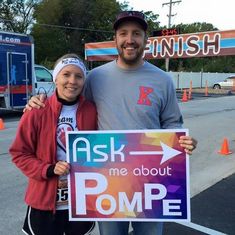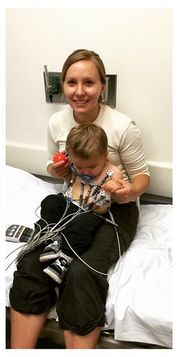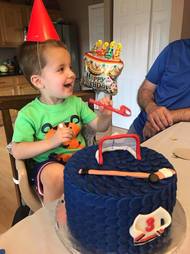Counseling Before Marriage? How Couples' Premarital Counseling Sets Up a Successful Marriage4/27/2017  By Caitlin Winkler, PLPC What is premarital counseling? You may ask, "If my future spouse and I are in love and ready to get married, why would we need counseling?" I believe this is a common way of thinking among individuals and couples today. Counseling is often viewed as a tool to help solve a current problem or struggle, but it is also something that can be used before an obvious issue arises. Think of it this way: if you are building a house, what is one of the most important steps? Engineers and builders would argue laying the foundation is critical. Why? Because the foundation is what everything else is built upon. Without a solid foundation, the house will be weak, it may fall, and it will not last long. The same is true with marriage. In our marriages, we often wait until we start to see the walls crumbling before we seek help. One preventative, proactive measure to take is premarital counseling. Yes, you are excited about marriage and do not fear divorce. But what happens when the storms of life start to blow and your strength is truly tested? Premarital counseling helps to strengthen your foundation. It involves thinking, planning, discussing, compromising, and preparing for a future life together, perhaps sharing about topics not even thought about before. It is designed to be a tool that helps create solid, lasting marriages. I am excited to offer premarital counseling at Unlimited Potential Counseling in the O'Fallon/Dardenne Prairie area. Our world needs strong marriages to help build strong families. This service is offered through a Christian perspective and integrates the importance of faith in the relationship. Please contact me and I will be happy to answer any questions you and your future spouse may have! Caitlin Winkler is a Provisionally Licensed Professional Counselor at Unlimited Potential Counseling & Education Center in O'Fallon. Caitlin is under the clinical supervision of Emily Kircher-Morris, LPC (MO #2012026754).
2 Comments
 By Caitlin Winkler, PLPC When thinking about how I wanted to approach writing this blog, I really struggled with what direction to take. There is so much I wish I could share and convey in my words. I hope you find some encouragement, hope, and peace in these thoughts that come from a very personal place. International Pompe Day is recognized each year on April 15th. The day is designed to bring awareness of this rare genetic disease and hope to those impacted by it. This strange name (pronounced POM-PAY) may sound familiar. President Trump highlighted Pompe on Rare Disease Day in February during a joint address to Congress. Never before has Pompe been shared on the world stage in this way. To hear Pompe mentioned in this setting was overwhelming because of the personal relevance it brings to my family. Our son was 8 days old when we found out he failed the newborn screening for Pompe Disease. With further testing, a lot of waiting, and many tears, doctors confirmed his diagnosis on his one month birthday. At that time, we didn't know what the next year would hold: Would he survive? Would he be in the hospital all the time? Will he ever walk? How do we handle this? After further testing (again) and meetings with doctors and genetic counselors, our son is said to have a mutation which indicates a later onset of this disease, meaning he is developing and functioning as he should at this time (He just turned 3 this weekend!). However, at some point in his life, he may begin to have symptoms. This disease involves a build up of complex sugars in the body, causing muscles to breakdown and begin to lose functioning. This can lead to troubles with the heart, eating, walking, and breathing. As the disease progresses, depending on the severity and extent of symptoms, it can lead to death. We are grateful for a healthy boy, but if I let myself, I can easily worry about what tomorrow holds and if/when this disease will begin affecting my son.  As parents and adults (and kids!), it can be easy to worry about tomorrow. Whether it is a rare disease diagnosis, a financial crisis, death of a loved one, or traumatic event, life is going to throw some curve balls our way! Walking through these trials is painful, miserable, and just plain hard. So what can we do when life gets bad? Here are some things that helped me survive and tread through some of my personal storms: 1. My faith 2. Strong support system- family, friends 3. Allowing myself to grieve and cry 4. Not taking a single moment for granted - life is short 5. Finding the positive and counting my blessings 6. Taking it one moment at a time - baby steps 7. Allowing people to help and asking for help 8. Kept going - I learned I am stronger than I thought I was! 9. Sharing my story when I am able to encourage and help others I don't know what your world looks like right now. The future may be unknown and terrifying. As Christopher Robin said to his great friend Winnie the Pooh, "You are braver than you believe, and stronger than you seem, and smarter than you think."
You've got this. Learn more about Pompe Disease: https://rarediseases.org/rare-diseases/pompe-disease/ Caitlin is under the clinical supervision of Emily Kircher-Morris, LPC. |
Archives
August 2021
Categories
All
|

 RSS Feed
RSS Feed